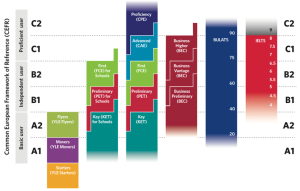Learning can’t entirely happen in the classroom. What you learn in the class and what you’re taught is only the beginning. But to what extent should IELTS participants rely on instructors? Can they handle the test on their own?

Self-studying needs specific characteristics and qualifications. For someone whose English is advanced, it is possible to prepare for the test independently, particularly when considering loads of IELTS-related material available, including books, booklets, YouTube channels, etc. Advanced-level participants are likely to get a desirable score, especially in terms of receptive skills (Listening and Reading), by self-studying only as long as they have the determination to study alone. However, many candidates say the pressure that comes from their IELTS teacher and the assignment deadline delivery they have to meet is essential for them to keep going and not give up.
In addition, only a small proportion of available IELTS materials are trustable and helpful. The rests are misleading books and videos, unsupported claims, and pointless test-taking strategies. Therefore, despite being an advanced learner of the language, an IELTS candidate can be misguided by these materials and fail to achieve a band score that they have the potential to get. For example, a misguided and confused B2+ learner might end up with an overall of 6 rather than 6.5.

Furthermore, since many of those who aim to self-study for the test go through a process of trial and error, trying different books and watching different videos with somewhat contradictory strategies and dos and don’ts, the preparation process becomes lengthy, and it takes time for these people to find the right track if they finally do.
Last but not least, no matter how proficient a candidate is, there will still be questions they won’t be able to find the answer to. Even C1 & C2 learners participate in Writing and Reading courses to increase their scores as much as possible. They know that although they can handle the test on their own and get a band 8 or higher, they might miss the chance to reach their full potential, which allows them to earn even higher scores.
All said above were mainly about advanced English learners. However, the majority of candidates are intermediate learners and are incapable of standing on their own. They need an IELTS instructor to help them stay on the right track, correct their mistakes, and give feedback to them. Especially for productive skills, namely Speaking and Writing, a mentor is needed.
But just like hundreds of unreliable IELTS resources, many IELTS instructors do not have what it takes to effectively help candidates improve their scores. Intermediate candidates should be careful who they put their faith in. In case they make a wrong decision, it will be a waste of time and money.
The last thing to mention is that for those who are in a hurry and have no insight into the test, regardless of their English level, getting instructions from an IELTS teacher is vital. It is impossible to understand how the test works in a limited amount of time. Candidates should either rely on an experienced IELTS teacher or take the risk of self-preparation by watching videos and reading booklets.
But remember, even with the best booklets and videos, candidates need to receive feedback on their Speaking and Writing. You need someone to tell you if you’re making a mistake and how it can be fixed.






